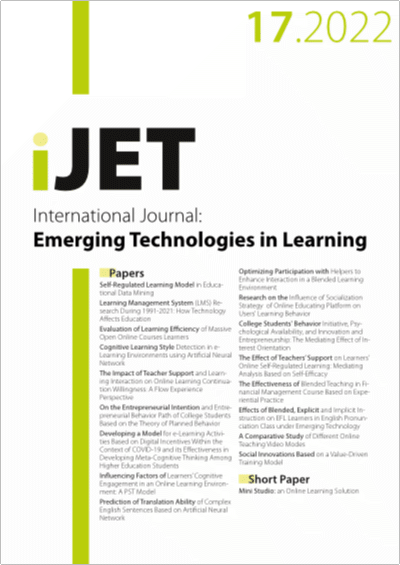Social Innovations Based on a Value-Driven Training Model
DOI:
https://doi.org/10.3991/ijet.v17i17.31937Keywords:
disadvantaged area, social wellbeing, educational inequality, mentoring, participatory action researchAbstract
Social innovation initiatives are solutions for a sustainable future that can help reduce regional disparities, increase territorial competitiveness and promote closing the gap. Reducing and then eliminating inequalities in education requires long-term solutions that call for new forms of co-operation between social actors. Our participatory action research focused on disadvantaged groups in the Northern Hungary region. The methodological basis of our study is a value-driven training model, built on a process approach capture of and support to social innovation, as one of its pillars, through elements such as change, measurement level and training forms. The other pillar focuses on value drive and knowledge management in its innovative combination with focus on participation, integrating primary, secondary and tertiary training solutions, thus reinforcing the potential interdependencies. The forms of training include structured training, mentoring, spiked training and training courses, thus reinforcing the complexity of the model. In this study, a structured presentation is provided of two good practices that offer the greatest added value among the initiatives we have collected and developed in an effort to eliminate educational inequalities. Our research methodology also integrates elements suitable for measuring the impact of good practices under study in social innovation. As a result of the research, it can be conceived that the value-driven social innovations observed in the Northern Hungary region and integrating young people of different ages and disadvantaged groups contribute to the settlement of community problems by useful methodological solutions.
Downloads
Published
How to Cite
Issue
Section
License
Copyright (c) 2022 Dr. Krisztina Varga, Dr. Mariann Veresné Somosi

This work is licensed under a Creative Commons Attribution 4.0 International License.



